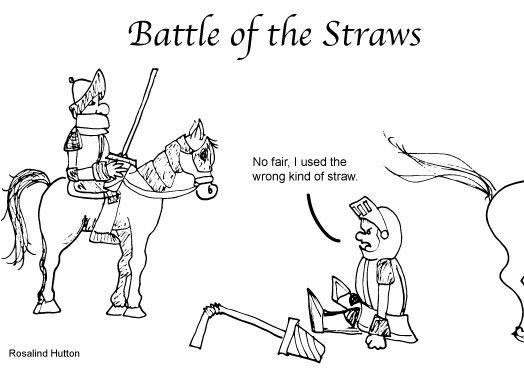There is nothing quite like the satisfying slurp from a straw when you know your drink is empty, but you keep sucking away for every last drop all the same. Well, this simple pleasure might end soon. Plastic straws are the victims of legal ire in California and some large cities, particularly Seattle.
But are they the environmental menace they have been demonized to be? No, they are not. Banning them is hardly anything beyond symbolic at best, and excessive pandering at worst.
Do not get me wrong, plastic, in any form, is bad for the little blue rock we call home. It is non-biodegradable and devastating to whatever ecosystem it ends up in.
More than likely, the ecosystem it ends up in is the ocean.
500 million is the often-cited figure for the motivation behind the straw ban. It is the number of straws Americans supposedly use in a day. Yes, a day. That means 3.5 billion a week.
This number, however, has never been proven to be credible. It has usually been associated with the National Park Service. NPS, however, attributes it to a project named Be Straw Free, whose director first gathered the data by calling straw manufacturers at the ripe age of eight, according to ecocycle.
As far as scientific methods go, this one is lacking. But the truth is, this number does not even matter. The exact number of plastic straws is irrelevant.
According to Duncan Hooper and Rafael Cereceda of Euro News, of all the plastic in the ocean, it is believed only 7.5 percent of it is straws. Compare this number to plastic bags, bottles, bottle caps and food wrappers or containers—which make up 9.4, 12, 16.7 and 18.6 percent, respectively—and it becomes hard to understand why there is such a hatred toward straws all of a sudden.
By the way, the 7.5 percent figure comes from an organization called 5 Gyres. It was founded by a man sailing across the Pacific who found a giant mass of floating plastic.
If you are wondering what that word gyres is, you are not alone. Turns out, gyres are circulating ocean currents. There are five across the globe, and the North Pacific Gyre is the largest ecosystem in the world.
The giant mass of plastic is not like the fat on top of a soup. It is more like pepper spread through the ocean, thus the name plastic soup. These microplastics are small enough for marine animals to easily swallow. They are carcinogenic and detrimental to the health of animals.
So, yes, straws are a problem. The unfortunate truth, however, is not even a nationwide ban would do any significant work toward reducing plastic amounts in the oceans.
A scientific study reported by Prachi Patel of Scientific American claimed most of the plastic flowing into the ocean comes from one of 10 rivers. Eight of those rivers are in Asia, and the remaining two are in Africa, well outside the jurisdiction of the state of California or any other member of the Union for that matter.
This movement has never been about straws, though. According to Rashika Viswanathan of Vox, Dune Ives, a leader in the straw-less movement in Seattle, admitted as much.
“It’s not really about the straws,” Ives said, as reported by Viswanathan, “It’s about pointing out how prevalent single-use plastics are in our lives, putting up a mirror to hold us accountable. We’ve all been asleep at the wheel.”
Fine, okay. Ives has a point. Most of the country, and in fact most of the planet, has been lazy when it comes to protecting the environment, myself included. But going all-in on straws is not going to make things any better, and it may just make them worse in the long run.
The straw bans are really not about saving the environment. They are a political ploy so somebody can stand up and say, “Yes, I voted for that. Keep voting for me!”
Real legislation would focus on making plastics more recyclable and providing incentives to make recycling more economically viable. Straw bans are, again, nothing but a nice waste of time.
But this will not happen. It is too hard. We will take the easy road and ban, of all things, straws. A price we will happily pay. However, consider this: are the oceans only worth giving up straws?
This is not the last straw: banning straws will solve nothing

Straw Face Off




















































































